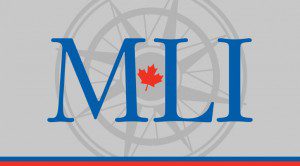 The UN Declaration on the Rights of Indigenous Peoples (UNDRIP) is about more than speeches, statements and vague promises, writes Ken Coates. It has to be about real and sustained action and a commitment to Indigenous empowerment.
The UN Declaration on the Rights of Indigenous Peoples (UNDRIP) is about more than speeches, statements and vague promises, writes Ken Coates. It has to be about real and sustained action and a commitment to Indigenous empowerment.
By Ken Coates, Sept. 21, 2017
As world leaders, including our own, meet at the United Nations this week, there have been renewed calls for Canada to fully embrace the United Nations Declaration on the Rights of Indigenous Peoples (UNDRIP).
Since the 2015 federal election campaign, when Liberal leader Justin Trudeau lifted Indigenous issues from the recesses of federal politics and established UNDRIP and the improvement of conditions for Indigenous Peoples as signature commitments of his party, UNDRIP has attracted a great deal of attention.
Indigenous Peoples celebrated the new prime minister’s obvious personal commitment to UNDRIP, but they had learned over the years to look for action more than promises. Their caution increased when the government announced – as logic, cost and Canadian realities dictated – that it would not adopt UNDRIP directly or immediately into Canadian law and practice.
Indigenous politicians, however, have been reluctant to be too critical of the prime minister.
Confidence in the Liberal government has declined over the past year among Indigenous people, with frustration mounting alongside compelling evidence of crises with water supplies, overcrowded housing, staggering rates of teenage suicide, and slow movement on treaty negotiations and other outstanding legal issues. When the major government actions of the past few months involve a statement of principles for reconciliation and an overdue but hardly exciting division of the Indigenous Affairs department into two ministries, you can appreciate that many Indigenous folks are not overly impressed.
Indigenous politicians, however, have been reluctant to be too critical of the prime minister. They know, better than the Liberal administration, the challenges facing their communities. They were not overly impressed by the prime minister’s sweeping endorsement of UNDRIP and of all the recommendations of the Truth and Reconciliation Commission. They had learned not to get their hopes up, particularly following the hard work that led to the 2005 Kelowna Accord, which then evaporated following the 2006 election.
Indigenous leaders also know that they have never had a federal government in Canada as publicly and sincerely committed to Indigenous affairs as the Trudeau administration is. The top two cabinet ministers in the Trudeau government, Minister of Justice Jody Wilson-Raybould and Minister of Indigenous Affairs Jane Philpott, have been assigned portfolios with key Indigenous responsibilities. Carolyn Bennett, who has poured her heart into Indigenous programming, now has focused responsibilities for improving Crown-Indigenous relations.
The test of UNDRIP, however, should not be the level of government spending and federal intervention in Indigenous affairs. Remember that aggressive government policy-making – such as the Indian Act, residential schools and reserve laws – still casts a dark shadow over Indigenous life. UNDRIP is about accepting the legitimacy of Indigenous governments and allowing Indigenous Peoples and communities to set the policy agenda and funding priorities. And it is here, not in high-profile government announcements, that the most important work is being done.
If UNDRIP is to mean anything, it has to be about real and sustained action.
Behind the scenes – where these discussions belong – Indigenous leaders are working with the federal government to identify the best means of going forward. It will be a rocky road. There are so many issues, real challenges and urgent needs, and so many real financial, legal and political constraints, that quick solutions are not at hand. But it is here, in the co-production of Indigenous programming, that the real authority of UNDRIP is to be found.
UNDRIP must be about more than speeches, statements and vague promises. The contemporary Indigenous rights agenda is shaped by frustration over the legacy of paternalism, racism and government intervention; Indigenous people live daily with the consequences of the errors and policy intrusions of the past.
If UNDRIP is to mean anything, it has to be about real and sustained action. The core issue is not the literal or technical imposition of the terms of UNDRIP, however much advocates might wish for this. More important is the expectation that signatory nations will come to share the Indigenous communities’ sense of urgency and a real commitment to Indigenous empowerment. In the background, in processes led by Indigenous leaders and supported by the government of Canada, is where the real work of UNDRIP is underway. Let’s hope that this important and collaborative work succeeds.
Ken S. Coates is a Munk Senior Fellow with the Macdonald-Laurier Institute (macdonaldlaurier.ca) and Canada Research Chair in Regional Innovation at the Johnson-Shoyama Graduate School of Public Policy, University of Saskatchewan.





